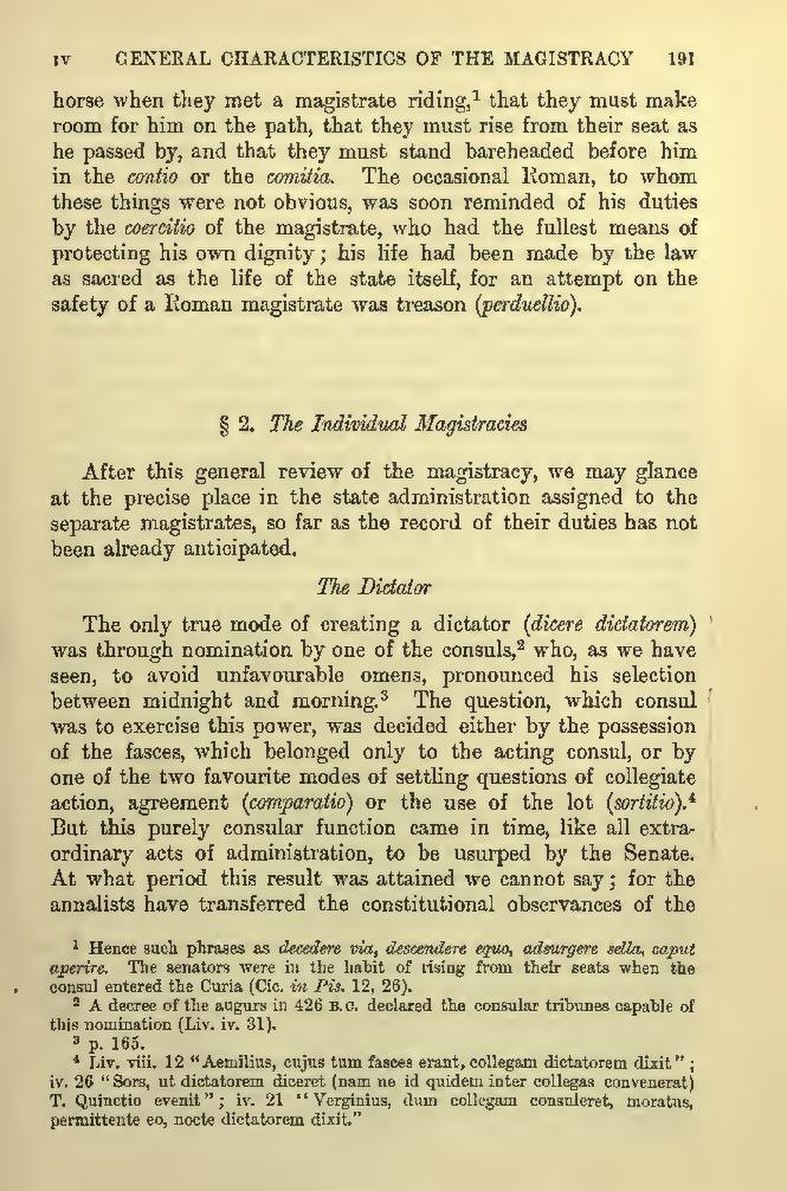horse when they met a magistrate riding,[1] that they must make room for him on the path, that they must rise from their seat as he passed by, and that they must stand bareheaded before him in the contio or the comitia. The occasional Roman, to whom these things were not obvious, was soon reminded of his duties by the coercitio of the magistrate, who had the fullest means of protecting his own dignity; his life had been made by the law as sacred as the life of the state itself, for an attempt on the safety of a Roman magistrate was treason (perduellio). § 2. The Individual Magistracies
After this general review of the magistracy, we may glance at the precise place in the state administration assigned to the separate magistrates, so far as the record of their duties has not been already anticipated.
The Dictator
The only true mode of creating a dictator (dicere dictatorem) was through nomination by one of the consuls,[2] who, as we have seen, to avoid unfavourable omens, pronounced his selection between midnight and morning.[3] The question, which consul was to exercise this power, was decided either by the possession of the fasces, which belonged only to the acting consul, or by one of the two favourite modes of settling questions of collegiate action, agreement (comparatio) or the use of the lot (sortitio).[4] But this purely consular function came in time, like all extraordinary acts of administration, to be usurped by the Senate. At what period this result was attained we cannot say; for the annalists have transferred the constitutional observances of the
- ↑ Hence such phrases as decedere via, descendere equo, adsurgere sella, caput aperire. The senators were in the habit of rising from their seats when the consul entered the Curia (Cic. in Pis. 12, 26).
- ↑ A decree of the augurs in 426 B.C. declared the consular tribunes capable of this nomination (Liv. iv. 31).
- ↑ p. 165.
- ↑ Liv. viii. 12 "Aemilius, cujus tum fasces erant, collegam dictatorem dixit"; iv. 26 "Sors, ut dictatorem diceret (nam ne id quidem inter collegas convenerat) T. Quinctio evenit"; iv. 21 "Verginius, dum collegam consuleret, moratus, permittente eo, nocte dictatorem dixit."
